|
The key to performing the physical/technical skills of golf when it matters, is through emotional intelligence. You see, there’s seems to be a very real difference between swinging the golf club competently to control the ball flight on a driving range, and to perform closer to your expectations on the golf course. In golf, we understand that this basically means your ability to control your emotional state in a way that allows you to access a peak, or optimal performance state, as needed. That's right, what seems easy enough to do in practice with many balls, appears to be more difficult when you have to hit just one ball. Hence, the peak, or optimal state. Emotional intelligence describes your aptitude for identifying, assessing and managing your emotional states in the various situations you face on the golf course, whether you’re competing, or not. A golfer who has largely developed his/her physical/technical intelligence, without emotional intelligence, will be found out when they compete. It is often suggested that competing alone teaches you the emotional intelligence skills you need, but this is simply not the case. If it was, then every golfer who competed in lots of tournaments would be handling situations under pressure like world class players do. And this is clearly not the reality that we experience working with golfers. "So, how do they deal with it? Many in our experience take more golf technique lessons. Or they fire their teacher, and find another teacher and take more golf swing lessons..."  Dustin Johnson's success comes primarily from his exceptional Emotional Intelligence skills. Dustin Johnson's success comes primarily from his exceptional Emotional Intelligence skills. Yes, competing helps you to develop certain competitive skills, like getting used to performing in competitive environments, but it will not necessarily help you to manage the pressure situations that you will find yourself in. What we have found with the majority of golfers who have gone through our E.I. training program at Pro Tour Golf College that they were very low in emotional intelligence skills. In many cases, they were competent with their ball-striking ability and ball-flight control, and like many, they have been competing in golf tournaments from a young age. The trouble is that when they wanted to execute shots under pressure, their well-developed tournament experience and physical/technical skills would break-down or collapse. This often led to frustration, complaining, or getting angry. Now with all the money invested in golf lessons, travelling and competing at tournaments, and golf range practice, trying their best to improve their game, their shot-making ability would leave them at a crucial time, appearing to break down too easily. So, how do they deal with it? Typically many in our experience take more golf technique lessons. Or they fire their teacher, and find another teacher, and take more golf swing lessons... After going through this cycle for a while, some of them start to acknowledge that maybe the problem is centered more around their 'mental skills.' So they read a book or two from one of the popular sports psychologists, and hope it gets better. But it many cases, it doesn't get better, because a golf book is not going to change hard wired emotional habits that have developed over a long period of time. So, many enroll in our Emotional Intelligence program, or similar programs, primarily to gain access to emotional intelligence training, so they can learn how to manage these pressure situations more effectively. Your emotional intelligence determines your potential for learning and performing the practical skills that underlie the four Emotional Intelligence (E.I.) quadrants developed by Daniel Goleman in his Emotional Competencies Model (see below). Daniel Goleman's Emotional Competencies Model"So, your emotional competence just shows how much of that potential you have realized, by learning and mastering skills that translate your E.I. into effective golf course performance capability." You can see that there are 18 competencies contained within the four quadrants of Daniel Goleman's model. In our experience, we have found that golfers who manage themselves and their game more effectively emotionally, when competing under pressure, are strong in the six skills contained in the Self Management cluster in the lower left-hand quadrant. Now, the right-hand side quadrants of Social Awareness and Relationship Management are extremely important also, particularly for golf teachers / instructors and coaches, and we will address these in another article. So, your emotional competence just shows how much of that potential you have realized, by learning and mastering skills that translate your E.I. into effective golf course performance capability. Central to understanding your E.I. is to recognize that your E.I. can be improved when using a golf competency based framework. A golf competency based framework simply defines your tasks, responsibilities, and behaviors for developing and improving your golf skills for competing on the golf course. Our definition of golf competencies are the skill sets (physical/technical/strategic/mental-emotional), knowledge, aptitudes, behaviors, practice methods, personality traits and intrinsic drivers which have a predictive value towards a golfer performing more effectively in a tournament. 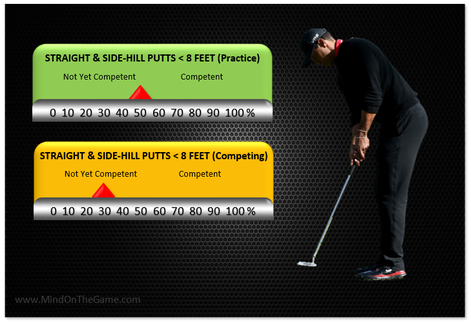 A simple example of how a golf competency based framework could help you in putting would be to measure short putting performance when your practice from inside 8 feet, as compared to when your competing in a tournament. For relatively straight putts let's say that you are holing on average 60 percent, and on side-hill putts you are holing 40 percent. So, for ease of understanding, let's say you hole 50 percent of your putts from inside 8 feet when you practice. Now, when you compete, and putt under pressure in a tournament environment, from the same distance range, you have discovered that you make about 30 percent on average. Now, based on this information, you could design a golf competency based framework for improving your putting skill from inside 8 feet, when putting under pressure. You'll notice in the above example how we measured results in two simple ways. We measured short putting performance as a percentage of success for holing putts, and we measured short putting success in terms of the level of competency you possess, ranging from not yet competent, to competent. We could also measure short putting performance in terms of how you respond differently emotionally when putting with and without pressure. We use Focus Band technology to help us achieve this, however, there a number of other training devices available on the internet for training E.I. such as Elf Emmit and Halo Sports. When you design your golf competency based framework, you can define and decide for yourself what your performance benchmarks are, and how you wish to measure them. From here, you can manage the skill development more easily. Now, as I mentioned above, the left-hand side box of Daniel Goleman’s Emotional Intelligence quadrants, contains the Self-Awareness group, and the Self-Management group, which are the E.I. elements that will help you and your golf game, when competing. The Self-Awareness group includes
The Self-Management group includes;
For the rest of this article we are going to focus on Self-Awareness (recognition) factors (highlighted in red), and also discuss one self-management technique you can us to get you over an emotional hump. We will also show you an example of a competency based framework we use for developing and improving your E.I. self-awareness for training and competing.  The Oracle of Delphi High upon the slopes of Mount Parnassus in Greece, lies the ruins of the Temple of Apollo, and it was here many centuries ago, that the oracle of Delphi resided. In ancient times, people from all walks of life would wind their way up the steep mountainside over a day, hoping for some words of wisdom from the priestess, in the temple’s inner chamber. Upon reaching the steps to the famous temple, visitors in those ancient times would be greeted by the famous inscriptions etched into the temple, “Know Thyself” and “Nothing in Excess.” What the ancients described as Knowing Thyself, is what we call, Self-Awareness. This is the starting point for developing and improving your emotional intelligence in golf. Self-Awareness is what Professor Howard Gardner describes as Intrapersonal Intelligence in his Multiple Intelligence's Theory. This area of human experience involves introspection, self-examination, and your self-reflective ability. It means that you have a deep understanding of yourself as you perform at golf, and what your current strengths and weaknesses are. It is also acknowledgment that you are a unique golfer and competitor, which means you understand the attributes and traits that you possess that makes you not only different from your fellow competitors, but also, where your competitive advantage lies. "Think carefully about this statement for a moment. How you judge yourself (verbally or physically) based on your performances on the golf course, and off, says a lot about how you judge your self-worth." 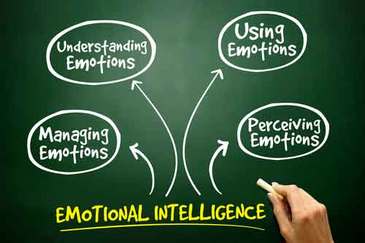 So, introspection is an altered state that allows you to self-examine--or to tune into your thoughts, feelings, and internal drivers. Self-Awareness Theory states that noticing ourselves and our behavior leads us to judging our behavior according to our internal standards. And it is this self-judgement of our behavior (performance), and how they affect our emotions, that needs to be addressed, and worked on, to become a more effective competitor under pressure. One of the things we say to golfers we work with is; "your self judgment = your self worth." Think carefully about this statement for a moment. How you judge yourself (verbally, physically or both) based on your performances on the golf course, and off, says a lot about how you judge your self-worth. Your self-worth (or self-value) is linked closely to your self-esteem, or how you feel about yourself. When competing, and not performing to your expectations, if you tend to punish yourself to the extent that it affects your future performances (behavior), on the golf course, then you need to develop a Self-Management Strategy to get you over this emotional hurdle quickly. Daniel Goleman defines self-management as "the ability to control or redirect disruptive impulses and moods" and as "the propensity to suspend judgement - to think before acting." Perhaps no part of E.I. is more vital than developing your ability to successfully manage your negative emotions or feelings, such as self-judgement on the golf course when things are not going as planned, so that is doesn’t overcome you and your ability to manage your shot-making. In order to change the way you feel about negative situations, you need to change the way you think about it. Self awareness begins with self-reflection, and the space between what you do, and how you respond to what you do, is the key to successful change. Here’s a three-step process that we use with students that you will find to be helpful for moving forwards on the golf course after you confront a situation that appears negative. The Golfer E.I. Skill Based Competency Framework A golf E.I. skill based competency framework is a model that broadly defines your blueprint for emotional excellence on the golf course. The framework can focus on one competency you wish to upgrade, or several, and can be designed and specifically applied to a range of situations you face on the golf course when competing. The goal of this process is to develop a high level of personal awareness about your feelings, and for you to become Emotionally S.M.A.R.T. so you can recognize and manage your emotions quickly and skilfully. You will also be able to recognize and effectively deal with other golfers and their negative emotions, when you are competing with them. Following is our Emotionally S.M.A.R.T. Golfers Guide for emotional excellence. When you design your skill competency framework, you might decide to use some--or all of these as goals or outcomes. There are four phases in our E.I. Training Framework that takes a student through the training process from start to finish. I will briefly discuss the steps involved in the Preparation Process and expand on the other aspects of the training process in the next article. THE PREPARATION PROCESS
 The Golf E.I. Competency Framework We design our competency based framework by beginning with the student completing the Golf Workshop Profile. The profile was developed by Bobby Foster, a management consultant headquartered in Columbia, South Carolina. Bobby is a former teaching professional and golf coach at the University of South Carolina where he coached several All-Americans including four players who played on The PGA Tour. Bobby is a Certified Behavioral Analyst specializing in the DISC Behavioral Style Model. You can go to www.mentalgolfworkshop.com and type 'protour' into the access code box to gain access to the Mental Golf Workshop Profile. You will find great value in the profile, and you receive a comprehensive 28 page report that is well-worth the small investment. "The beauty of this system is that our players get an accurate and comprehensive report without having to spend hours completing a laborious questionnaire. You sure get a lot for the time and money you invest in this process." – Dr. Greg Rose, Co-Founder, Titleist Performance Institute After a student completes the Mental Golf Workshop report at their home (and uses our access code), we are sent a copy of the results to study before they come to train with us. When we meet the student for the first time we have already got some very useful information about them and their E.I. capabilities from the profile. After meeting them, we put them on the FocusBand to get some objective data as to where where they are currently with their emotional states using the system to generate some objective data. We have been using Focus Band for years in our training, and find it to be a very practical, and an easy to use system, that's very easy for us to interpret. With FocusBand we can objectively measure where the blockages are in their pre-shot routine, on the range, and also on the golf course. This system is being used by a number of leading professional golfers on major professional tours and our students find it very helpful to understand what and how they need to experience to get into an optimal performance state to hit their shots. We Begin With the End in Mind So armed with the data from the Mental Golf Workshop Profile and the FocusBand, we sit down with the student to provide feedback to them before we begin the process by discussing the goals or outcome of their E.I. training program. Specifically, we discuss the importance for the student of recognizing that increasing E.I. will give them the results that they have been trying to achieve in other ways. We explain that their E.I. training process will closely align with their values, and that by building a strong belief system around developing excellent E.I. skills, that they will stay motivated through to the end of their training. When discussing the goal or outcome of the training, we make sure that they understand that this training process is like any other training they have participated in, and that it requires a high level of commitment. We need for them to realize from the starting point, that their expectations need to align with their commitment to the process, and to complete the training to the best of their ability. When we discuss the design of the training process, we ask them behavioral-based questions as these are more helpful for helping them to understand and develop the specific skills they need to make progress. We begin by asking them problem-focused behavioral questions that relate to their current behavior in specific circumstances on the golf course, and then we discuss how the design of their E.I. training process will change these behaviors. Then we flip the frame of reference right-around to discuss solution-focused questions where they will explain to us (using specific examples) how they will manage those situations behaviorally, when they are emotionally challenged on the golf course after completing the training. For example, the questions we ask might resemble these;
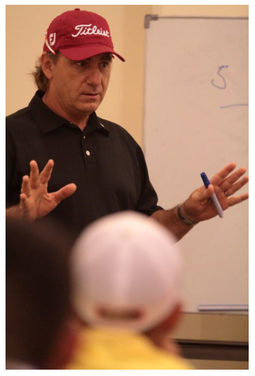 Once we have defined what improved E.I. behaviors would look like, we design the E.I. improvement process. Being outcome focused, but recognizing the importance of the specific steps in the process will get the student to the outcome is what this training process is all about. By the end of the E.I. training process the student will understand the following:
It is our hope that you are now beginning to have more of an appreciation for E.I. skills in golf. Our goal is for you to not only understand that E.I. skills are every bit as important as technical, physical, or strategic skills, but that you are developing them in your game, as you develop these other important facets of the game. Lawrie Montague and David Milne - Pro Tour Golf College Jakarta, Indonesia Recommended Reading List Frames of Mind: The Theory of Multiple Intelligences by Howard Gardner Books by Daniel Goleman Focus: The Hidden Driver of Excellence The Brain and Emotional Intelligence: New Insights Working with Emotional Intelligence Emotional Intelligence |
Archives
June 2019
|
Proudly Supported By
Copyright © 2011 - 2018 Pro Tour Golf College
Website Managed By Golf Performance Media
All Rights Reserved
Website Managed By Golf Performance Media
All Rights Reserved

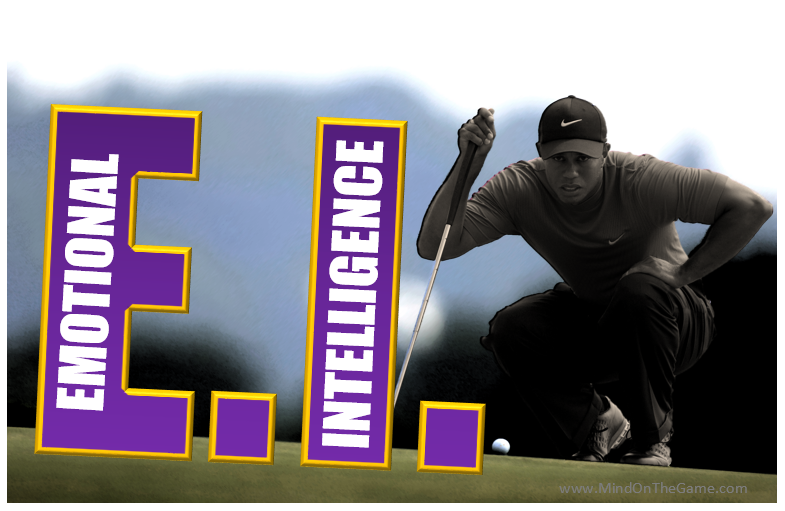
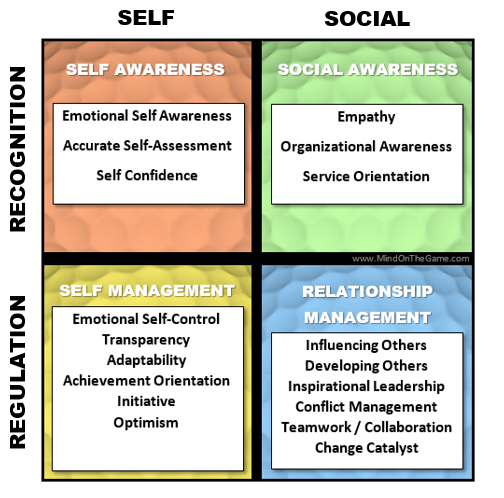

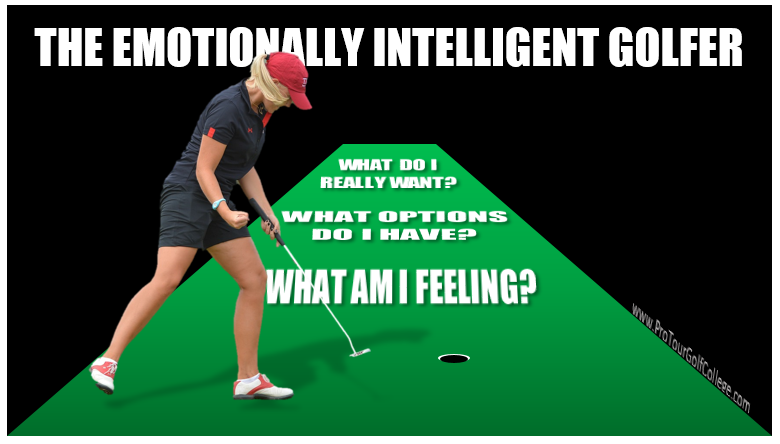
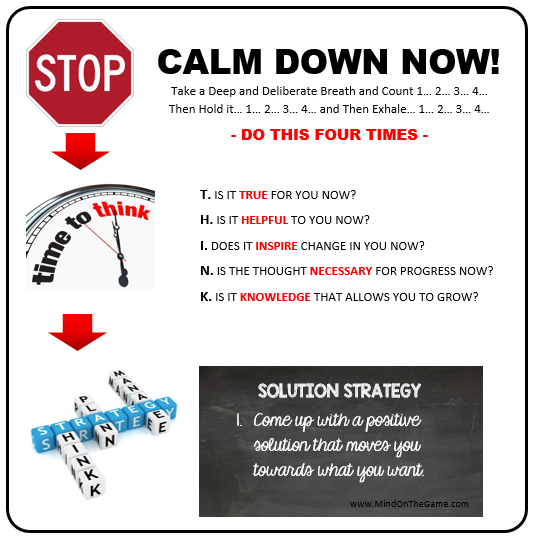
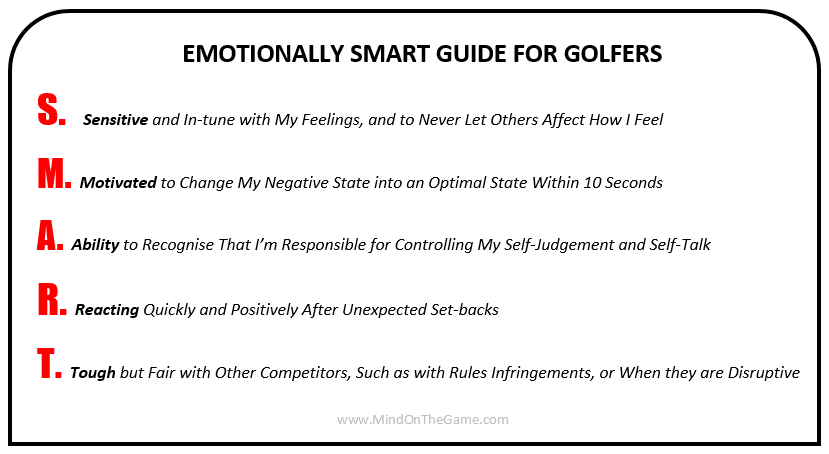
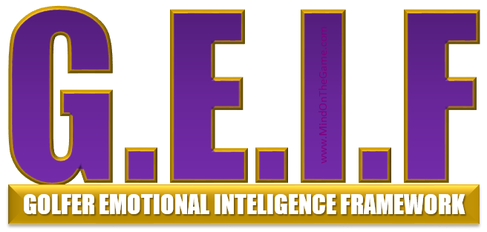
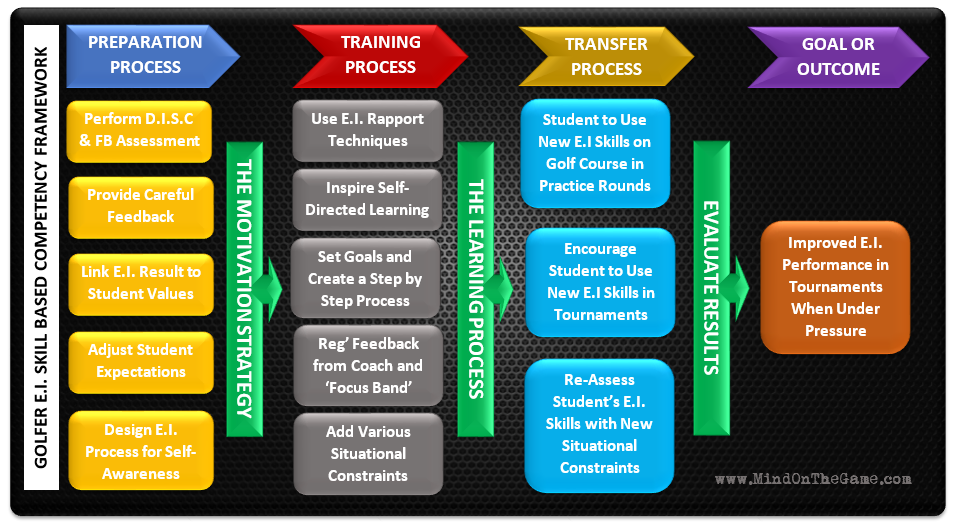

 RSS Feed
RSS Feed



